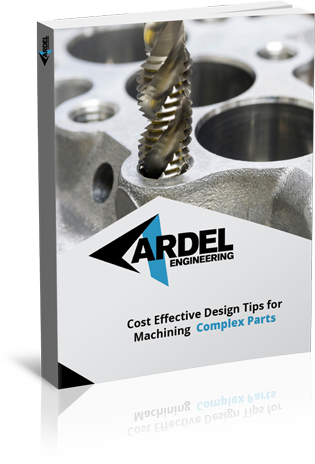Machining is a subtractive manufacturing process, meaning it removes material from a workpiece to create the desired part or product. It is highly versatile, accommodating a wide range of metal and non-metal substrates. One of the most common materials used in machining operations is aluminum.
Due to its lighter material weight, lower material hardness, and greater formability, aluminum is ideal for use in machining and other manufacturing operations. Below we highlight some of the other advantages of using aluminum for machining applications, discuss how aluminum is used in various machining processes, and outline some of the typical machined parts made from aluminum.
Advantages of Using Aluminum in Machining Operations
In addition to its excellent machinability, aluminum demonstrates many characteristics that make it suitable for use in machining operations, such as:
- High strength-to-weight ratio: Aluminum is both strong and lightweight, qualities that are critical for machined parts used in high-performance applications, such as those found in the aerospace and automotive industry.
- Corrosion resistance: Aluminum is available in several grades, which vary in the degree of corrosion resistance demonstrated. In machining operations, one of the most commonly employed grades—6061—offers excellent corrosion resistance.
- Electrical conductivity: Aluminum exhibits greater electrical conductivity (about 37.7 million siemens/meter at room temperature) than other commonly machined metals, such as carbon steel (7 million siemens/meter) and stainless steel (1.5 million siemens/meter). This quality makes machined aluminum parts suitable for use as electrical and electronic components.
- Surface finishing and anodization potential: Aluminum readily accommodates various surface treatment and finishing processes, such as painting, tinting, and anodization. This quality allows manufacturers to improve the functional and aesthetic properties of the machined aluminum part or product.
- Recyclability: Aluminum is highly recyclable, enabling manufacturers to reuse scrap material produced during machining operations and construction materials from finished products discarded at the end of their service lives.
- Affordability: Compared to other machining materials (e.g., brass, titanium, and PEEK), aluminum is cheaper without significantly sacrificing performance. Additionally, its machinability results in lower production costs, while its lighter weight results in lower transportation costs.
As indicated above, the machining process accommodates a variety of materials, ranging from metal and plastic to paper and wood. In addition to aluminum, some of the materials regularly employed in machining operations include other metals (e.g., steel and stainless steel) and thermoplastics (e.g., ABS, PEEK, POM, and PTFE). Compared to these materials, aluminum offers a number of advantages:
- Compared to steel and stainless steel, aluminum demonstrates much lighter material weight and better machinability.
- Compared to ABS, aluminum exhibits higher material strength.
- Compared to PEEK, aluminum has better machinability and lower purchasing costs.
- Compared to POM, aluminum provides greater material strength and heat resistance.
- Compared to PTFE, aluminum maintains higher material strength.
An Overview of Aluminum Machining Processes
“Machining” is an umbrella term that encompasses a range of subtractive manufacturing processes—e.g., milling, turning, drilling. There are also several types of machining technologies and techniques—e.g., CNC machining, Swiss screw machining, vertical and horizontal milling, and electrical discharge machining (EDM). Below we outline how aluminum is handled in each of these machining methods.
- Computer numerical control (CNC) machining: The CNC machining process employs the use of computer software and CNC-compatible equipment to guide the movement and motion of machine tools across the surface of the workpiece. It allows for the production of highly precise and accurate aluminum CNC parts and products.
- Swiss screw machining: Swiss screw machining is ideal for the production of small—but highly precise—cylindrical components made from aluminum, such as electronic or medical parts.
- Vertical/horizontal milling: Milling is a machining process that utilizes rotating cutting tools to remove excess material from the workpiece. Milling equipment can feature a vertical or horizontal configuration; vertical units are ideal for small quantities of simple aluminum parts, while horizontal units are more appropriate for large quantities of complex aluminum parts.
- Electronic discharge machining (EDM): EDM utilizes the electrical discharge generated between two electrodes to remove material from the workpiece. While it is generally used to process harder and more difficult-to-machine materials, it can be used on any electrically conductive material, including aluminum.
Typical Machined Aluminum Parts
Industry professionals employ aluminum in machining operations to produce a variety of parts and products. These components find application in a wide range of industries, including:
- Automotive
- Aerospace
- Communications
- Electrical and electronic products
- Lighting
- Medical
Typical product examples include dowel pins, EMI housings, front panels, lighting fixtures, medical devices, and spline shafts.
Custom Aluminum Machined Parts & Solutions by Ardel Engineering
During the planning stage of a machining project, the construction material is a key consideration. For products that require a high strength-to-weight ratio, corrosion resistance, electrical conductivity, anodization, and recyclability, aluminum is a perfect option. If you need assistance on your next aluminum machining project, the experts at Ardel Engineering are here to help.
At Ardel Engineering & Manufacturing, we specialize in the precision CNC machining of parts and products made from a variety of metals, plastics, and engineering-grade materials. To learn more about our aluminum machining capabilities, contact us or request a quote today.


